Cirrhosis of the liver, what is the cause?
There are many causes of cirrhosis, and the one that causes the most cirrhosis in our country is chronic hepatitis B. The so-called trilogy is like this: chronic hepatitis B → cirrhosis → liver cancer.
It can be seen that many hepatitis B patients will progress to cirrhosis, but in fact only about 25% of chronic hepatitis B patients will progress to cirrhosis, mainly those who do not receive antiviral treatment and who like to drink alcohol are prone to cirrhosis. Hepatitis B patients, in order to prevent cirrhosis, the most important thing to do is to carry out antiviral treatment, because hepatitis B this disease is because the virus in the liver for wrongdoing, so we have to use drugs to suppress the hepatitis B virus, the most commonly used and most effective antiviral drugs are entecavir, tenofovir, long-acting interferon, these three drugs, there are imported and domestic, and the effect is all OK. As long as through active antiviral treatment, all indicators are controlled within the normal range, then hepatitis B patients rarely cirrhosis, the vast majority of hepatitis B cirrhosis is delayed out.
In addition to Hepatitis B, which can lead to cirrhosis, we also have Hepatitis C in this country. Chronic Hepatitis C can also lead to cirrhosis, and Hepatitis C is also treated primarily with antiviral therapy.
In addition to the aforementioned hepatitis B and C, which can lead to cirrhosis, prolonged heavy drinking, cholestasis, or the use of liver-damaging drugs can all lead to cirrhosis.
For example, alcohol abuse, long-term heavy drinking will lead to liver cell damage, fat deposition and liver fibrosis, and ultimately cirrhosis, especially with hepatitis B or hepatitis C patients, if you are still drinking alcohol, then it will add to promote the process of cirrhosis, you must be vigilant, you must stop drinking.
Long-term use of liver-damaging drugs and exposure to carbon tetrachloride, arsenic (arsenic is arsenic trioxide) and other chemical poisons can lead to toxic hepatitis, which can lead to cirrhosis over time, so the usual medication must read the instructions, if it is clear that it is harmful to the liver, try to eat as little as possible, especially if you have a hepatitis B or alcoholic liver patients. Which drugs will hurt the liver? Let's take some examples: some anti-tumor drugs such as cisplatin, carboplatin, and some immunosuppressants such as azathioprine, methotrexate, etc., some drugs for the treatment of tuberculosis, such as isoniazid, rifampicin, etc., and the common cold medicine in the acetaminophen component, if overdose is also caused by serious liver damage, be vigilant. Over time, cirrhosis is possible.
Cirrhosis of the liver is not uncommon. Cirrhosis is also a particularly serious disease that causes a great deal of physical harm and suffering. Learn about the concepts, causes, and other aspects of cirrhosis here as a way to prevent cirrhosis and prevent yourself from becoming a member of the cirrhosis brigade.
In fact, the reason why cirrhosis is a very common liver disease is that early symptoms are not obvious and difficult to detect, while liver function is obviously impaired in the late stage, and in the late stage, it is able to cause various complications such as cancer, which makes patients feel miserable.
Cirrhosis of the liver can be caused by a variety of things. So what are the causes of cirrhosis? Here's how to find out.
1. Alcohol poisoning.Alcohol abuse is one of the common causes of cirrhosis. The liver is an organ that detoxifies alcohol. Alcohol, on the other hand, contains ethanol and acetaldehyde, both of which can harm the liver when consumed and cause cirrhosis in the long run.
2. Taking chemical drugs or long-term exposure to chemicals.With the development of industrial production, industrial pollution has become more and more serious. Prolonged exposure to chemicals or chemical substances by some people in related occupations may lead to hepatitis and eventually to cirrhosis of the liver.
3. Inadequate intake of nutrients.Malnutrition will lower the body's resistance, thus affecting the normal performance of the liver's detoxification function and eventually causing cirrhosis.
4. Viral hepatitis.Viral hepatitis is one of the most important causes of cirrhosis, such as hepatitis B and hepatitis C.
5. Poor circulation in the body.Poor circulation in the body produces circulatory disturbances that can lead to cirrhosis.
6. Blockage of the bile ducts.Blockage of the bile ducts leads to bile stasis, bile duct necrosis and eventually biliary cirrhosis.
Like this answer, please like or recommend to a friend. Harvest more reliable knowledge related to liver and gallbladder, pay attention to [Hepatobiliary surgeon Liu Bo】
Cirrhosis occurs in the advanced stages of many chronic liver diseases and is not easily detected in the early stages, mainly characterized by liver decompensation and portal hypertension.
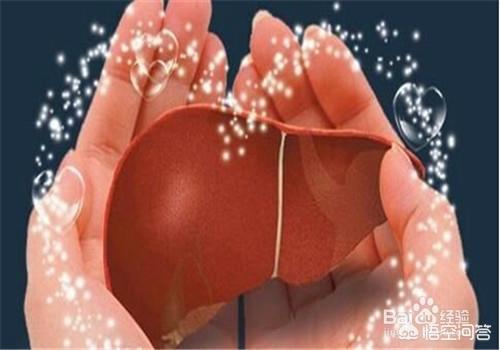
Cirrhosis of the liver is often combined with many other complications and has a high incidence nationwide, occurring most often in men between the ages of 35 and 50. Cirrhosis can be caused by a number of factors.
1. Suffering from viral hepatitis, which accounts for the vast majority of causes. When there are two or more types of hepatitis, the development of cirrhosis is accelerated.
2, long-term alcoholism, many men in our country long-term large amounts of alcohol will lead to the body's ethanol content is elevated, triggering toxic effects, leading to cirrhosis of the liver.
3. Hepatitis of non-alcoholic fatty liver, which can lead to cirrhosis in the late stage.

4, the body's bile stagnation, the body has a continuous bile stagnation, or bile duct blockage will lead to bile acid, bilirubin concentration increases, damage to the liver cells, can lead to biliary cirrhosis.
5, the body of the hepatic vein blood reflux is blocked, resulting in long-term hypoxia and stagnation in the liver, and ultimately can lead to cirrhosis of the liver.
6, hereditary diseases, such as congenital enzyme defects and other diseases, resulting in their own body of certain substances can not be normally discharged and accumulated in the liver triggered cirrhosis.
7, oral drugs or contact with some industrial toxins, such as long-term exposure to phosphorus, arsenic, etc. can be caused by physical poisoning or oral medication triggered by drug hepatitis, ultimately leading to liver function damage, evolving into cirrhosis.
8, autoimmune hepatitis can also trigger cirrhosis.
Cirrhosis should be combined with specific treatment, usually pay more attention to rest, avoid exertion; in the diet should eat some high vitamin, easy to digest food, avoid eating some too rough and hard food, prohibit drinking alcohol.
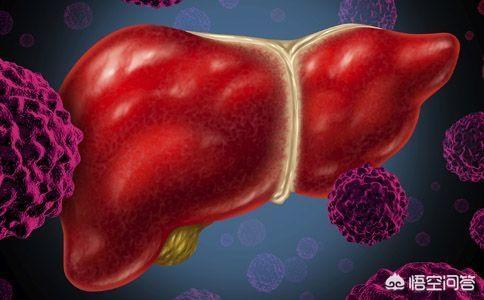
Answerer: Yan Xiaoxiao, M.S.
Welcome to Life Calling for more useful health knowledge.
Viral hepatitis is the most common cause of cirrhosis, and 60%-80% of cirrhosis is caused by viral hepatitis, most commonly by hepatitis B. Long-term alcohol consumption and alcoholism is the second most common cause of cirrhosis.
Other causes include schistosomiasis, obstruction of hepatic venous return, biliary tract disorders, inherited metabolic diseases, and cryptogenic cirrhosis. Some patients have cirrhosis of unknown etiology, which is collectively referred to as cryptogenic cirrhosis.
The main manifestations of cirrhosis in general are fatigue, emaciation, dark color, low urine, swelling of the lower limbs. Poor appetite, abdominal distension, gastrointestinal dysfunction and even malabsorption syndrome, hepatogenic diabetes mellitus, polyuria, polyphagia and other symptoms can occur. It can also cause many complications, and in serious cases, it may even be life-threatening.
Cirrhosis should first be treated in conjunction with the cause of the disease. If it is caused by hepatitis B or C virus, anti-viral and liver-protecting treatments should be carried out.
Cirrhosis patients should eat less hard food, prohibit alcohol, prohibit spicy and stimulating food; control the intake of salt and sugar, avoid eating too much protein, try to eat a variety of food every day, food cooking should be soft and tasty, easy to digest. At the same time, strengthen physical exercise, regular routine.
How is cirrhosis of the liver caused? This is a big question, so big that there is absolutely no way to cover it in one article.And in fact, the mechanism of cirrhosis is still not very clear.
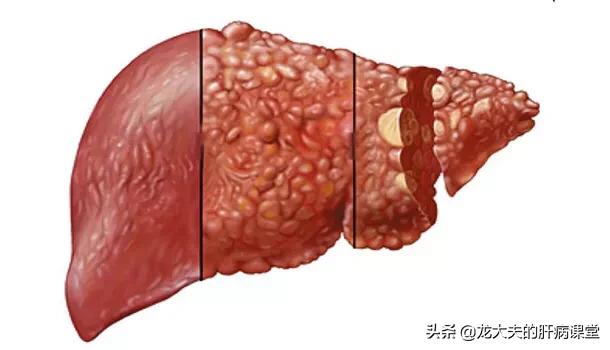
In other words.The one key factor that touches and drives the development of cirrhosis has not yet been found; the problem of cirrhosis of the liver, if it can be found, may be easily solved.
I remember one.International Liver Disease ExpertsIt was once said that whoever could reverse cirrhosis had found the key to solving the hepatitis B problem. But unfortunately, that key has not yet been found.
It has been known for a long time that cirrhosis is an advanced stage of liver fibrosis. Cirrhosis, having led to extensive destruction of the normal liver tissue structure, forms regenerative nodules surrounded by dense fibrous tissue, theUsually irreversible。
In contrast, liver fibrosis in the pre-cirrhosis stage can be reversed with treatment.
That is why understanding the occurrence of liver fibrosis is so helpful in understanding the formation and prevention of cirrhosis.
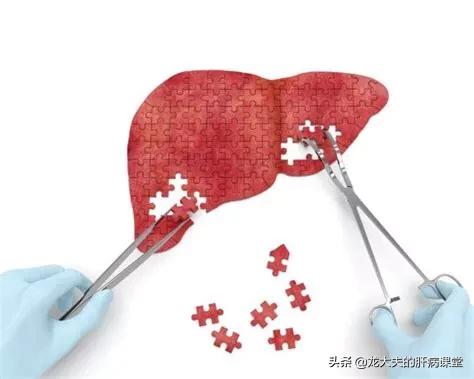
Formation of liver fibrosis
Liver fibrosis arises during long-term, chronic repeated liver cell injury and is an excessive deposition of connective tissue in the liver. In fact, in layman's terms, liver fibrosis is a specific type ofscar。
During the development of liver fibrosis, it is accompanied by necrosis and regeneration of hepatocytes.Regenerating liver cells that can replace and repair the damaged liver; however, as liver fibrosis progresses and destroys the liver structure.Ultimately, in this inflammatory, restorative"Tug of war."In the midst of this, damage to liver function is caused.
These words above may not be well understood. They can be understood as follows: regenerated liver cells have to be repaired into a normal liver, while liver fibrosis occurs to disrupt this process.
The key to this is the recurring inflammation of the liver.
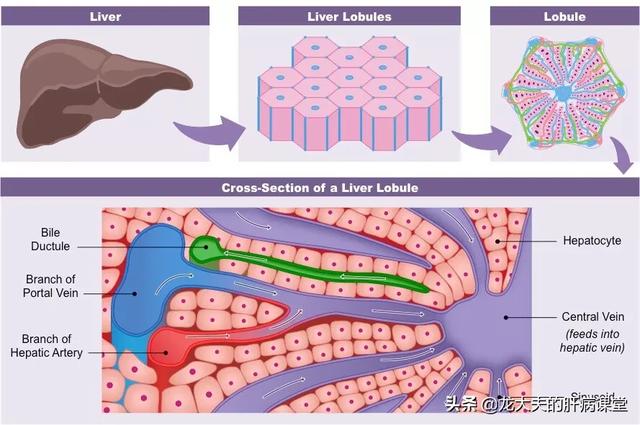
How does liver fibrosis progress to cirrhosis?
The evolution of the disease process from hepatic fibrosis to cirrhosis.Usually takes more than six months。
It can be said that this is a relatively long process. Understanding this, we are able to understand why it is important to treat aggressively to stop the process when there are persistent and recurring episodes of hepatitis.
The pathohistologic manifestation of hepatic fibrosis, which is primarily an intrahepatic accumulation of connective tissue, is a form of over-repair after hepatocellular injury accompanied by excessive synthesis and insufficient degradation of hepatic extracellular matrix.
Its development is often difficult to notice because liver fibrosis itself is asymptomatic and is aThe process of concealment。
The scarring caused by liver fibrosis distorts blood flow through the liver and disrupts the structure of the normal liver lobules, creating what is known as a "pseudolobule".
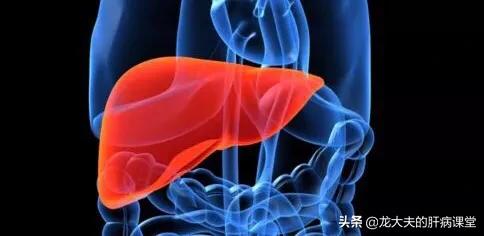
Removing the cause is central to the fight against cirrhosis
Liver fibrosis is reversible if inflammatory episodes are reduced by removing viruses (such as HBV and HCV) during the initial stages of liver fibrosis formation.
In the same way, chronic drinkers can stop liver fibrosis from progressing further to cirrhosis by abstaining from alcohol, fatty liver by weight loss and exercise, hemochromatosis by de-ironing therapy, and autoimmune liver disease by immunotherapy.
And if chronic and repeated liver injury over the course of years and years is left unchecked, liver fibrosis is often irreversible and will unsurprisingly transform into cirrhosis, which in turn may further develop into liver cancer.
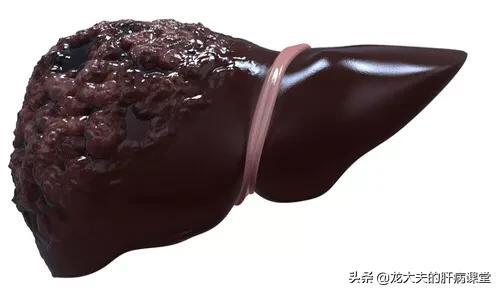
I'm Dr. Long who loves science, so follow me if you want to learn more about infection and liver disease!
Feel free to comment, like, and retweet!
First of all, cirrhosis is a disease that is difficult to treat, and the gradual development of the disease to the middle and late stages will lead to multi-organ failure and death, leading to cirrhosis of the liver, there are many factors, and from hepatitis to cirrhosis of the liver is a relatively long course, cirrhosis is mainly due to a variety of factors lead to chronic inflammation of the liver, diffuse fibrosis, pseudo lobe and regenerative nodule formation, intra and extra-hepatic vascular proliferation as a feature of the lesion, the early stage of liver cirrhosis Symptoms are not obvious, so it is not easy to be found.
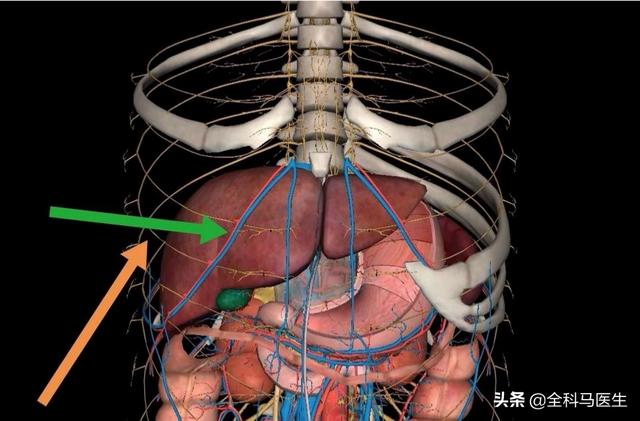
What are the causes of cirrhosis of the liver as answered by Dr. Ma in the following paragraphs?
1. Viral infections
Mainly common is hepatitis B virus, this virus infection is not timely liver protection treatment, it is easy to lead to liver cirrhosis, especially active hepatitis is the most terrible, but also has a certain degree of contagious, in addition to long-term drinking people, due to the destruction of alcohol, so it is easy to form alcoholic hepatitis, and the next step will also develop into cirrhosis of the liver.
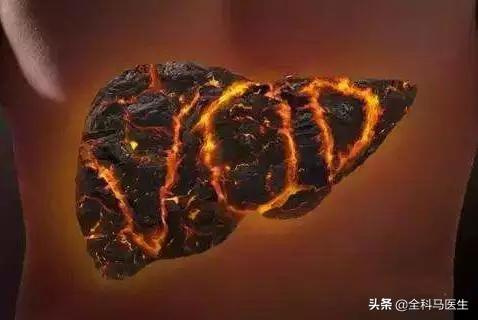
2、Biliary stasis
The liver has the role of secretion and excretion of bile, when the gallbladder and bile ducts have lesions, resulting in the excretion will be impaired, so the long-term lead to the inability to timely exclude, in the liver stagnation, will continue to destroy the liver cells and liver tissues, and the bilirubin will be elevated, so it is easy to lead to the formation of biliary cirrhosis.

3. Blood circulation disorders
Blood circulation within the liver is also very rich, so when hepatic vein embolism, inferior vena cava obstruction, cardiac insufficiency and other factors will lead to hepatic blood circulation obstruction, so it will cause stagnation within the liver, and long-term stagnation will lead to hepatocyte degeneration and fibrosis, so it will also lead to cirrhosis.
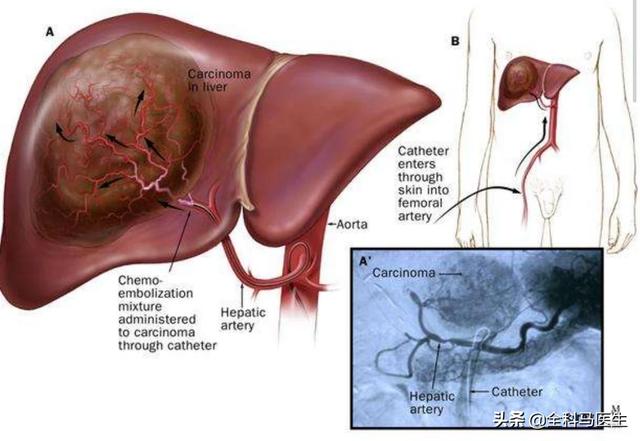
4, in addition to these common causes, there are schistosoma infection, hereditary, inborn enzyme deficiency, ketone metabolic disorders, hemochromatosis, poor dietary habits and other factors can induce cirrhosis.
What are the symptoms of cirrhosis of the liver as answered by Dr. Ma in the following article?
1. Replacement period
That is to say, compensated cirrhosis is early, early symptoms are not obvious, some patients will appear epigastric distension discomfort, fatigue, food loss, diarrhea and other symptoms, especially after exertion or stimulation is obvious, will be relieved after resting, and oral administration of some pro-digestive drugs after abdominal symptoms will be relieved.
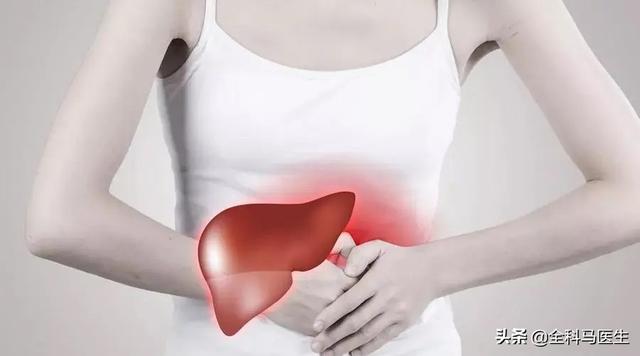
2. Loss of compensation
This stage is the serious period of cirrhosis development, and there will be decompensation of liver function (weakness, emaciation, jaundice, hemorrhage, liver palms, spider nevus, hepatic facies, ascites, fever, etc.), and there will be high pressure of hepatic portal vein (gastric varices of low esophagus, abdominal wall varices, hemorrhoidal varicosities), as well as infections, gastrointestinal hemorrhages, and hepatic encephalopathy, etc. Complications may also occur.
Follow Dr. Ma for more health answers, thank you!
Cirrhosis is a common chronic liver disease in modern society, most cirrhosis in our country is caused by fatty liver, viral hepatitis such as hepatitis B, and some cirrhosis patients are caused by excessive alcohol abuse. Cirrhosis patients have liver tissue lesions, symptoms such as necrosis of liver cells, gradual deformation of liver, severe impairment of liver function, etc. Early cirrhosis patients often have no obvious symptoms due to the liver's self-recovery ability and strong compensatory ability, while cirrhosis in the late stage will have serious consequences such as impaired liver function, multiorgan complications such as gastrointestinal hemorrhage, secondary infections, and cancerous changes.
So what are the causes of cirrhosis?
1, fatty liver, fatty liver patients often do not think they are unhealthy, do not pay attention to treatment, resulting in fatty liver deterioration, leading to the formation of cirrhosis;
2, viral hepatitis, China is now viral hepatitis, especially the number of hepatitis B patients remain high, these hepatitis B patients, a considerable portion of patients do not receive formal treatment eventually led to the evolution of cirrhosis;
3, alcoholism, the liver has the function of detoxification, detoxification, excessive alcohol abuse of people suffering from liver disease rate is much higher than the norm;
4, malnutrition, studies have shown that malnourished people have lower resistance to toxins and other harmful substances, which is also one of the factors leading to cirrhosis;
5, long-term exposure to toxic substances such as containing arsenic, carbon tetrachloride, etc. can also lead to drug-type hepatitis, untreated can also lead to cirrhosis;
6. Schistosomiasis is the underlying cause of schistosomal cirrhosis;
7. Cholestasis is the cause of biliary cirrhosis.
Cirrhosis of the liver often leads to death due to a variety of complications, so it is important to watch your diet and actively cooperate with treatment once you have been tested for cirrhosis.
Instructor: Zhou Lijun, Deputy Chief Physician, Department of Infection, General Hospital of Tong Coal Group Company.
He specializes in the treatment of chronic liver disease, bacillary dysentery, typhoid fever, brucellosis, and infectious diseases such as chickenpox, hand-foot-mouth disease, mumps, scarlet fever and measles in children.
If you find this article useful, please feel free to like or recommend it to your friends and follow [Medlink Media].
Cirrhosis is a common liver disease. There are many major causes of cirrhosis:
1, suffering from chronic hepatitis, if not well treated, will progress to cirrhosis, such as hepatitis B, hepatitis C and so on.
2. Drinking large amounts of alcohol over a long period of time, alcohol can damage the liver and lead to alcoholic fatty liver, which can progress to cirrhosis.
3. Long-term use of liver-damaging drugs or exposure to industrial poisons can lead to cirrhosis. Eating moldy and spoiled food can also lead to cirrhosis or even liver cancer.
4, intrahepatic biliary stasis, extrahepatic bile duct obstruction, high concentration of bilirubin on the liver cells have damage, long-term, can cause cirrhosis.
5. Chronic heart failure, blockage of hepatic veins and inferior vena cava and other diseases can cause long-term ischemia and hypoxia in the liver, which can lead to hepatocellular necrosis and cirrhosis.
6, often eat big fish and meat, diet too greasy, obesity, often eat high-calorie food, can lead to fatty liver, fatty liver can develop into cirrhosis.
The main measures to prevent cirrhosis are:
1, moderate supplement high protein food, such as milk, eggs, lean meat and so on. Eat a light diet with less salt and oil. Limit the intake of high-calorie foods, such as cream cakes, potato chips, candies, chocolate, fried cake, doughnuts, twist, ham, etc. Obese people need to lose weight. Do not eat spicy and stimulating foods. Eat more fresh vegetables and fruits.
2、Quit smoking and limit alcohol, patients with liver disease should quit drinking. Actively treat fatty liver. Avoid taking medicines that are damaging to the liver for a long time.
3, regular life, early to bed and early to rise, try not to stay up late, avoid excessive fatigue. Adhere to participate in sports, such as badminton, tennis, jogging, swimming and so on. Aerobic exercise for 30 minutes a day, 5 days a week can prevent and treat fatty liver.
4、Keep your mood happy and avoid falling into anger, depression, anxiety and other emotions.
Cirrhosis is a relatively common intermediate and advanced liver disease, usually with diffuse hepatocellular necrosis and nodular regeneration. The compensated stage of cirrhosis may have no obvious symptoms, and the decompensated stage of cirrhosis may present a variety of clinical symptoms mainly manifested by liver decompensation and portal hypertension, with a poor prognosis.
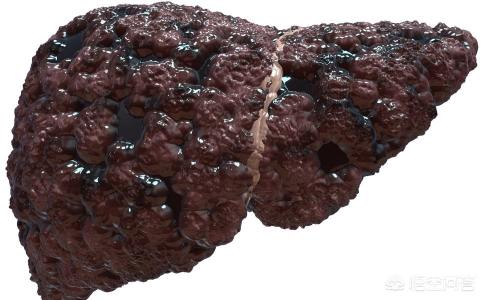
What are the causes of cirrhosis?
A variety of factors can cause cirrhosis, in China, the most common cirrhosis developed from viral hepatitis (hepatitis B and C); in foreign countries, alcoholic cirrhosis is common, long-term heavy drinking is the main reason for the formation of alcoholic cirrhosis; in addition, non-alcoholic fatty liver disease patients, if you do not pay attention to adjusting the diet and lifestyle, the damage factor persists, will also be developed into steatohepatitis later or even steatohepatitis or even fatty cirrhosis. There are also a few patients whose cirrhosis is caused by schistosomiasis, cholestasis and abnormal nutritional metabolism.
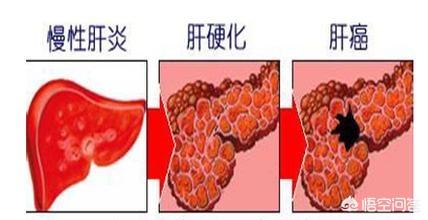
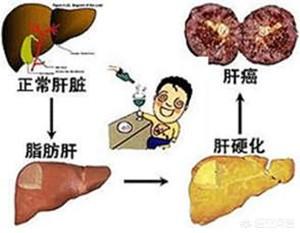
I hope that my answer will help you! Give me a like if you like it!

Cirrhosis is a condition in which the liver becomes hard as a rock and loses all its functions.
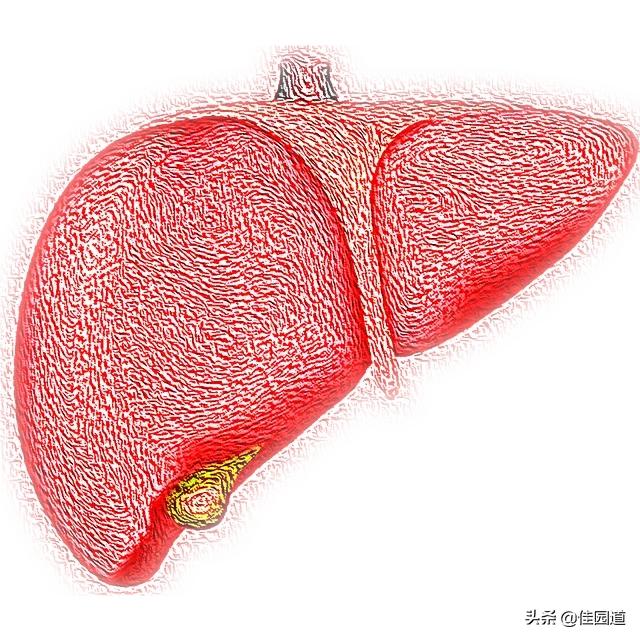
The evolution of cirrhosis is a very slow process in which pathogenic factors cause damage to liver cells, necrosis of liver cells, regeneration and proliferation of liver cells resulting in liver fibrosis, and further development to cirrhosis.
So what are some of the causes of liver damage?
Common causes include viral hepatitis B, C and D, liver damage caused by parasites, bile sludge, non-alcoholic fatty liver caused by long-term heavy drinking, obesity, etc., liver lesions caused by medications (e.g., methotrexate, antipyretic and anti-inflammatory drugs, anti-tuberculosis drugs such as isoniazid) or industrial toxins such as organophosphorus and heavy metals, autoimmunity, congenital heredity, and chronic heart failure that cause liver stagnation and hypoxia for a long period of time.

These above factors are the first to cause hepatocyte damage, hepatocyte degeneration and necrosis, collapse of the scaffolding supporting the liver lobules, regeneration and proliferation of hepatocytes, and formation of hepatic fibrosis, which further develops into cirrhosis, which roughly undergoes hepatitis → hepatic fibrosis → cirrhosis → partial cirrhosis and ultimately develops into → hepatocellular carcinoma, that is, hepatocellular carcinoma trilogy.
Conclusion:For cirrhosis caused by alcohol, bile sludge, drugs, toxins, chronic heart failure, obesity, in the early stages of liver damage, not before the development of hepatic fibrosis in a timely manner to remove these causes, and to take active and effective treatment and preventive measures, generally will not develop into cirrhosis.
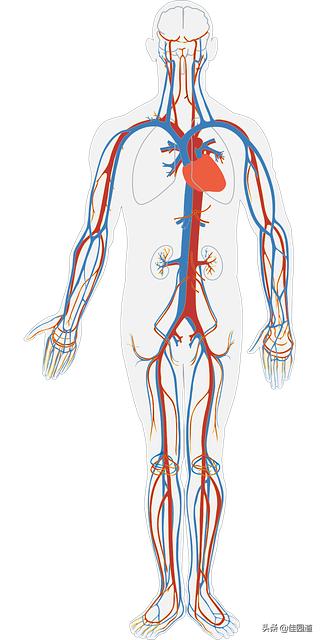
This question and answer are from the site users, does not represent the position of the site, such as infringement, please contact the administrator to delete.